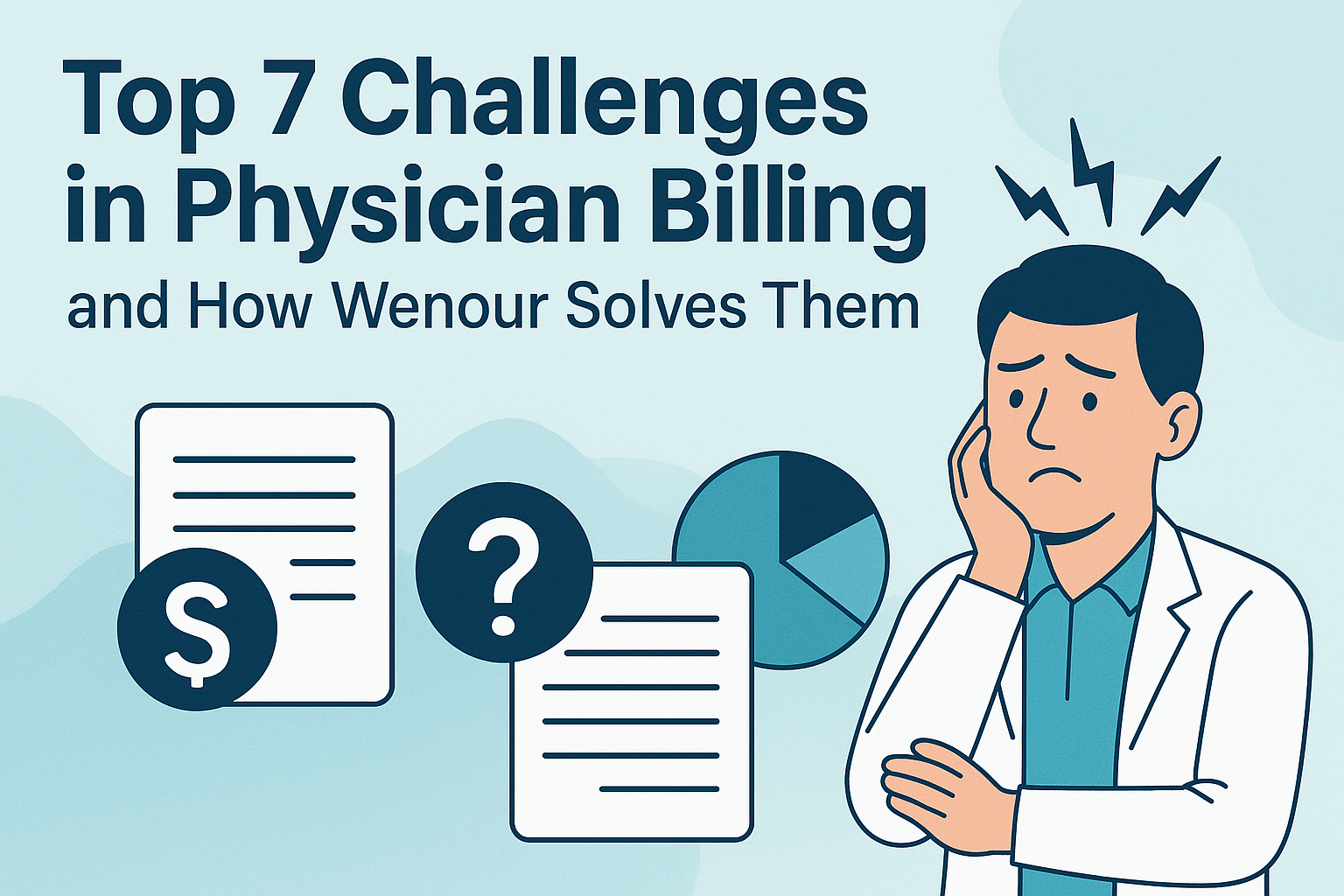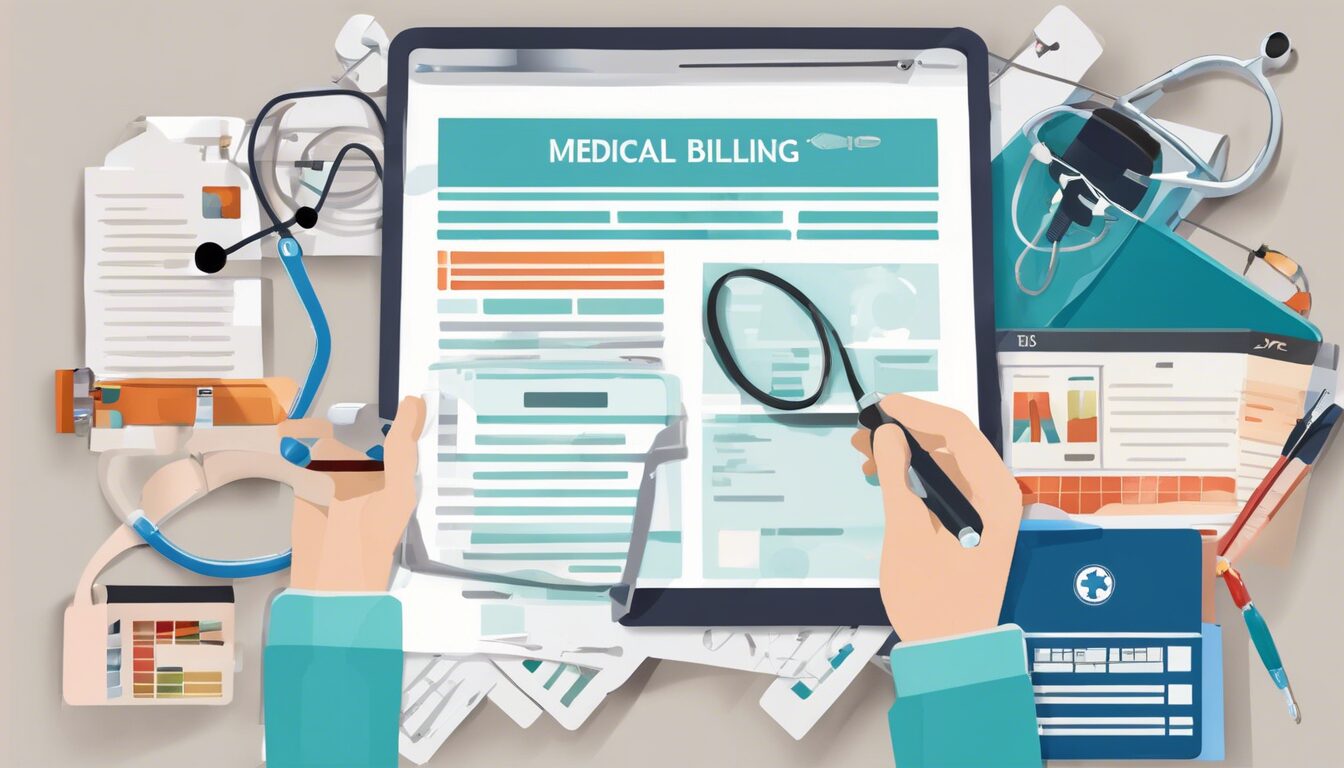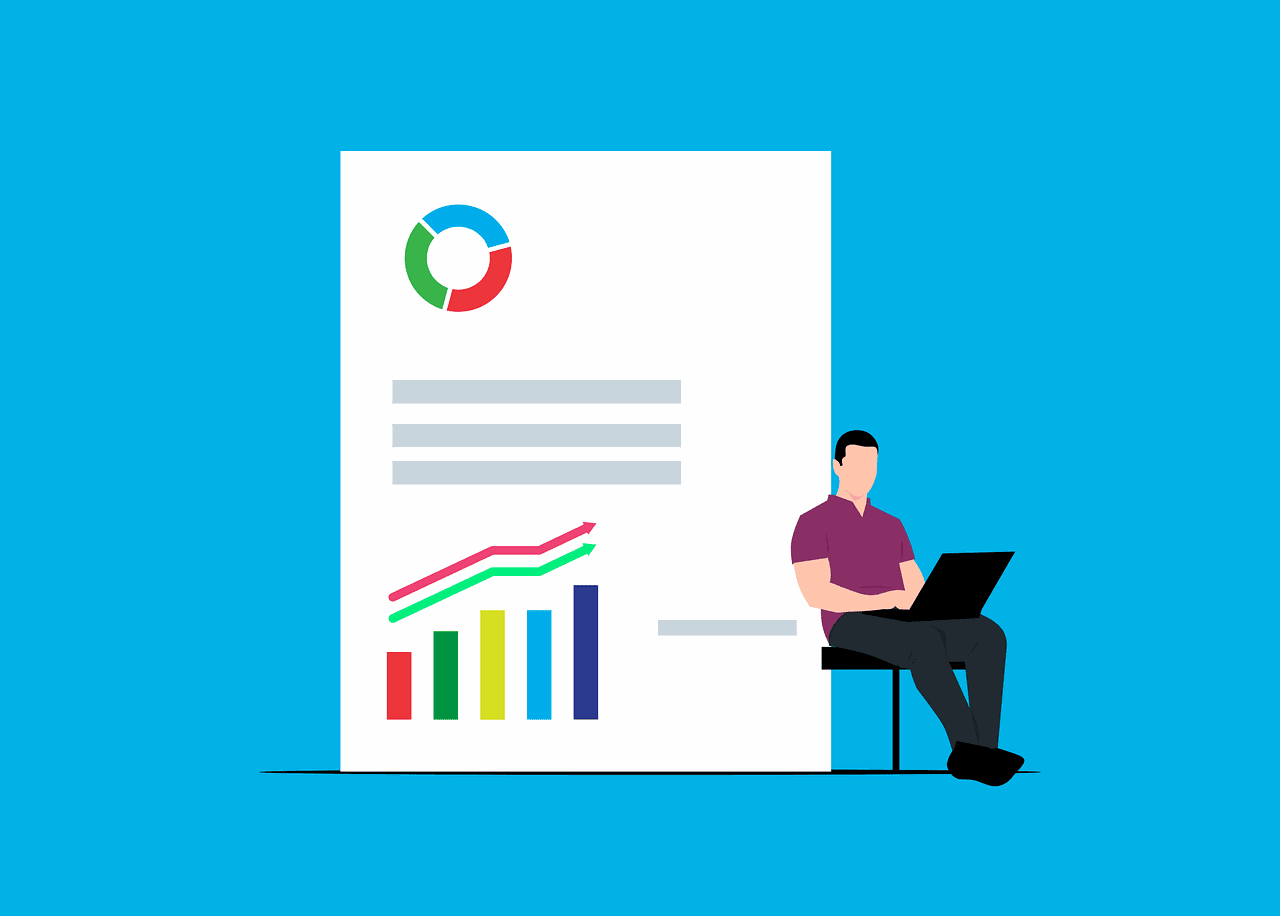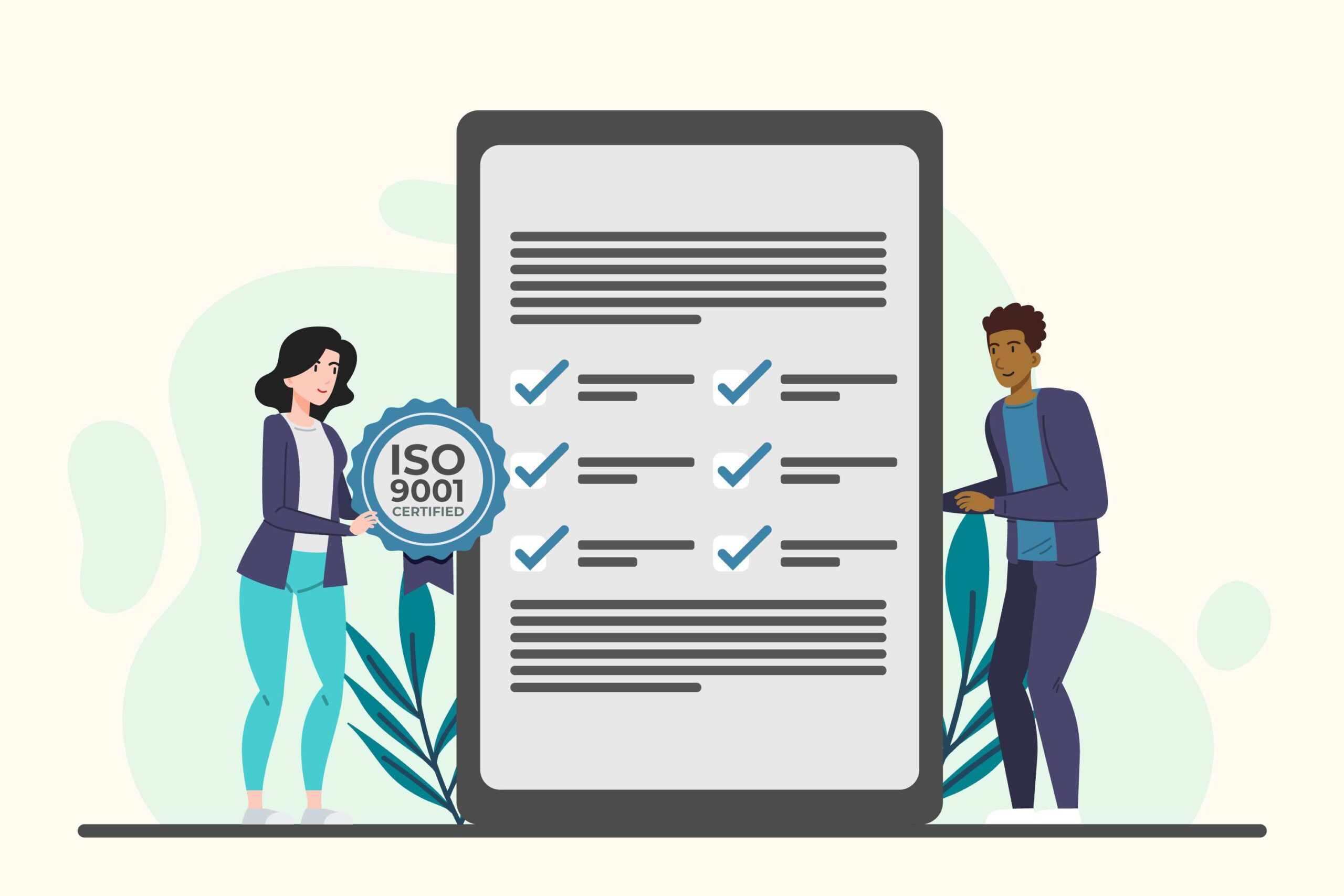
How Medical Billing Services in New Jersey Can Enhance Hospital Revenue Cycle Management

In today’s healthcare landscape, efficient revenue cycle management is crucial for hospitals in New Jersey to maintain financial stability and deliver quality patient care. Medical billing services in New Jersey have an impact on the way healthcare providers handle their financial operations, streamlining processes and enhancing revenue collection. As hospitals face increasing pressure to optimize their financial performance, partnering with specialized billing services has become a strategic move to improve overall revenue cycle management.
These services offer a range of benefits to enhance hospital revenue cycle management. They streamline claim submission, reduce denial rates, and improve payment posting accuracy. By leveraging data analytics, medical billing companies in New Jersey help healthcare providers identify areas for improvement and implement revenue cycle management best practices. Additionally, these services ensure compliance with ever-changing regulations and help hospitals meet key performance indicators. To wrap up, this article will explore how medical billing services in New Jersey can boost hospital revenue cycle management and financial performance.
The Current State of Hospital Revenue Cycle Management in New Jersey
The healthcare landscape in New Jersey is experiencing significant challenges, particularly in the realm of revenue cycle management (RCM). Hospitals across the state are grappling with financial pressures, regulatory changes, and the need for technological advancements to streamline their operations.
Financial Challenges Faced by NJ Hospitals
New Jersey hospitals are confronting substantial financial hurdles. In 2022, many healthcare providers experienced negative or razor-thin operating margins, making increasing revenue and cutting costs top priorities for 2023 . This financial strain has led to a shift in focus, with healthcare organizations prioritizing survival and growth strategies.
One of the most pressing issues is the struggle to maintain adequate staffing levels in the revenue cycle. Many hospitals are operating with only a fraction of their budgeted positions for front-end registration and back-end patient accounting areas . This staffing shortage has a direct impact on the efficiency of RCM processes and, consequently, on the financial health of these institutions.
Impact of Healthcare Reforms
Recent healthcare reforms have had a significant impact on hospital funding in New Jersey. The Murphy administration has proposed a revision of the hospital funding model, aiming to leverage greater federal investment. This new approach is expected to generate at least $300 million more in funding without additional cost to state taxpayers .
Under this proposal, nearly $205 million would be shifted from the charity care program to Medicaid. This change is designed to attract a higher federal match, potentially resulting in $511 million that could be distributed to hospitals serving large numbers of low-income patients .
Technology Adoption Trends
To address these challenges, New Jersey hospitals are increasingly turning to technological solutions. The Healthcare Revenue Cycle Management market is experiencing significant growth, driven by advancements in technology and the increasing adoption of digital solutions by healthcare providers .
Key areas of technological investment include:
- Streamlined billing processes
- Compliance management systems
- Patient financial experience improvement tools
However, the adoption of these technologies comes with its own set of challenges. High implementation costs, data security concerns, and the complexity of integrating RCM systems with existing healthcare IT infrastructure pose significant hurdles .
To enhance their RCM processes, hospitals are also focusing on designing effective workflows throughout the revenue cycle. Many organizations are partnering with knowledgeable revenue cycle management companies like Wenour, which can provide objective feedback and identify opportunities for progress in New Jersey’s healthcare landscape .
How Medical Billing Services Streamline RCM Processes
Patient Registration and Eligibility Verification
Medical billing services play a crucial role in streamlining the revenue cycle management (RCM) process, starting with patient registration and eligibility verification. This initial step involves collecting demographic and insurance information from patients to create accurate accounts . Efficient patient registration sets the foundation for a smooth billing journey and helps prevent mix-ups that could lead to claim denials.
Eligibility verification is a critical component of the RCM process. It involves confirming a patient’s insurance coverage and determining their eligibility for specific healthcare services . This step typically occurs during patient registration or before a scheduled appointment. By verifying insurance coverage upfront, healthcare providers can prevent revenue loss due to denied claims and estimate costs more accurately .
Medical billing services utilize advanced systems to streamline the eligibility verification process. These systems can automatically check patient insurance information, reducing the time and effort required for manual verification. This automation helps to improve the overall efficiency of the RCM process and reduces the likelihood of errors.
Charge Capture and Coding
Charge capture is a critical aspect of the RCM process that medical billing services help to optimize. It involves accurately recording and submitting data about patient interactions to payers and insurance companies . Efficient charge capture can have a significant impact on a healthcare provider’s revenue. For instance, capturing an additional $100 a day in missed or under-charges could result in over $25,000 in increased annual revenue .
Medical billing services employ skilled coders who translate service documentation into standardized ICD, CPT/HCPCS, and NDC codes . Accurate coding is vital for explaining the services to the insurance company and ensuring proper reimbursement. These services often utilize advanced software systems that integrate with Electronic Health Records (EHR) to streamline the coding process and reduce errors.
Claims Submission and Follow-up
The final step in the RCM process that medical billing services streamline is claims submission and follow-up. This involves gathering all necessary documentation, including the patient’s medical records, insurance information, and any supporting documentation . Medical billing services ensure that claims are submitted accurately and in a timely manner, which is crucial for prompt reimbursement.
These services also handle the critical task of claim scrubbing, where claims are checked for errors or missing information that could lead to denials . This proactive approach helps to reduce the denial rate and accelerate the payment process. In fact, according to a poll conducted by the Medical Group Management Association (MGMA), 42% of healthcare leaders reported prior authorization as the top reason for denials in their organization .
Medical billing services also provide comprehensive post-submission support, including diligent follow-ups with insurance companies and handling inquiries regarding claim details . This ongoing support helps to resolve any issues quickly and ensures that healthcare providers receive maximum reimbursement for their services.
By leveraging the expertise of medical billing services like Wenour in New Jersey, healthcare providers can significantly improve their RCM processes, reduce denials, and optimize their revenue cycle.
Enhancing Revenue Collection Through Specialized Billing Services
Denial Management Strategies
Effective denial management is crucial for healthcare providers to optimize revenue collection. The process involves preventing, investigating, analyzing, and resolving denied insurance claims. Healthcare organizations lose significant amounts of money each year due to denied claims that could have been prevented with robust denial management processes .
To implement effective denial management strategies, healthcare providers should follow these steps:
- Examine all aspects of denials
- Analyze reasons behind denials
- Categorize denials
- Marshal supporting facts and documents and appeal
- Track results
- Build a preventative mechanism
Leveraging denial management software can assist in navigating and resolving claim denials from insurance companies and other payers. These tools aim to improve revenue cycles and maximize reimbursement by identifying, tracking, and even appealing claim denials in some cases .
Patient Payment Solutions
Patient payment solutions play a crucial role in enhancing revenue collection for healthcare providers. These solutions automate much of the billing and payment processes, offering features such as payment processing, online payment portal creation and management, payment reminders, and flexible payment plans .
Key benefits of implementing patient payment solutions include:
- Improved patient satisfaction and loyalty
- Increased likelihood of timely payments
- Reduced administrative burden on staff
- Enhanced pricing transparency
Patients today expect convenient payment options, including digital wallet tools like Apple Pay, Google Pay, and PayPal. Offering these options demonstrates patient-centric payment flexibility, which can be a competitive advantage in a tough market .
Accounts Receivable Management
Effective accounts receivable (A/R) management is essential for maintaining a healthy revenue cycle. Healthcare providers should focus on reducing the number of days in A/R to improve cash flow and financial stability.
Key strategies for optimizing A/R management include:
- Clearly defining payment terms and expectations for patients
- Implementing efficient medical billing processes
- Increasing the frequency of billing
- Utilizing A/R workflow automation
Research indicates that providers can expect roughly 10 cents per owed dollar with any account beyond 120 days old . To address this issue, healthcare organizations should consider implementing automated A/R solutions that handle tasks such as benefits verifications, submitting claims, and creating A/R reports .
By leveraging specialized billing services like those offered by Wenour in New Jersey, healthcare providers can significantly enhance their revenue collection processes, reduce denials, and optimize their overall financial performance.
Leveraging Data Analytics for Improved Financial Performance
Data analytics has become a transformative tool in healthcare finance, enabling organizations to enhance their revenue cycle management (RCM) and overall financial performance. By harnessing the power of data, healthcare providers can make informed decisions, optimize processes, and improve patient care while maintaining financial stability.
Key Performance Indicators for Hospitals
Healthcare finance key performance indicators (KPIs) are quantifiable measurements that help hospital finance and department leaders effectively gage financial and operational performance against set goals . These KPIs provide valuable insights into various aspects of hospital operations, allowing for data-driven decision-making and performance improvement.
Some essential KPIs for hospitals include:
- Days cash on hand
- Operating profit margin
- Days in accounts receivable
- Claim denial rate
- Revenue per bed
- Expense per bed
- Number of patients served
- Labor expense
By tracking these KPIs, healthcare organizations can identify areas for improvement and make informed decisions about resource allocation, staffing, and financial strategies .
Predictive Analytics in RCM
Predictive analytics has emerged as a powerful tool in revenue cycle management, enabling healthcare providers to forecast trends, identify potential bottlenecks, and implement proactive strategies for improvement . By leveraging advanced algorithms and machine learning, organizations can enhance the accuracy and efficiency of claim submissions, reducing the incidence of denials and accelerating the reimbursement process .
Some key benefits of predictive analytics in RCM include:
- Improved claim submission accuracy
- Proactive denial management
- Personalized patient billing
- Enhanced revenue forecasting
Healthcare organizations utilizing data analytics have experienced a decrease in denial rates of up to 50% . Additionally, data-driven revenue forecasting has been shown to reduce forecasting errors by up to 20% .
Data-Driven Decision Making
Implementing a data-driven culture in healthcare organizations is crucial for leveraging the full potential of analytics. Leaders play a vital role in fostering this culture by:
- Having a clear vision and commitment to data-driven practices
- Leading by example in prioritizing data
- Emphasizing empowerment and trust among employees
- Promoting openness and transparency in data sharing
- Encouraging continuous learning and recognizing data champions
By embracing data-driven decision-making, healthcare facilities can better manage the challenges of today’s business landscape, including rising healthcare costs and changing regulations .
Wenour, a leading medical billing company in New Jersey, understands the importance of leveraging data analytics for improved financial performance. By partnering with Wenour, healthcare providers can access advanced analytics tools and expertise to optimize their revenue cycle management processes and enhance their overall financial health.
Conclusion
Medical billing services in New Jersey have a significant influence on hospital revenue cycle management. These services streamline processes, enhance revenue collection, and leverage data analytics to boost financial performance. By partnering with specialized billing companies like Wenour, healthcare providers can optimize their revenue cycle, reduce denials, and improve overall financial health. This approach allows hospitals to focus on delivering quality patient care while ensuring financial stability.
To wrap up, the healthcare landscape in New Jersey is evolving, and efficient revenue cycle management is crucial for hospitals to thrive. Medical billing services offer a range of solutions to address the challenges faced by healthcare providers, from patient registration to accounts receivable management. By harnessing the power of data analytics and implementing best practices in revenue cycle management, hospitals can navigate the complex healthcare environment more effectively. This leads to improved financial outcomes and better patient experiences.
FAQs
1. What steps can be taken to enhance revenue cycle management in healthcare?
Enhancing revenue cycle management in healthcare can be achieved by simplifying patient access, understanding payer rules, improving payment collection processes, automating workflows, engaging and training staff, and focusing on the patient experience.
2. What constitutes the revenue cycle in a hospital’s billing system?
The revenue cycle in a hospital’s billing system encompasses the entire process of managing a patient’s account. This starts from pre-screening for financial coverage and creating their account, to the final payment of the bill at the end of the account cycle.
3. How does revenue cycle management differ from medical billing?
Revenue cycle management is a comprehensive approach that includes not only the medical billing process but also extends to determining patient eligibility, documenting the delivery of services, and the coding, submitting, and managing of claims and payments.
4. Why is revenue cycle management crucial for preventing billing-related issues?
Revenue cycle management is vital as it focuses on accurate data collection, medical billing services, and coding. This accuracy significantly reduces the likelihood of submitting incorrect information to insurance companies, thereby preventing billing-related issues.























